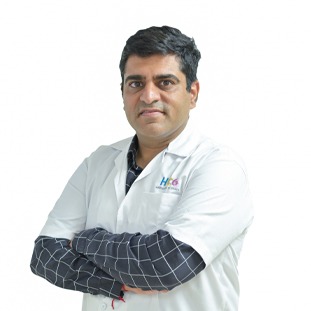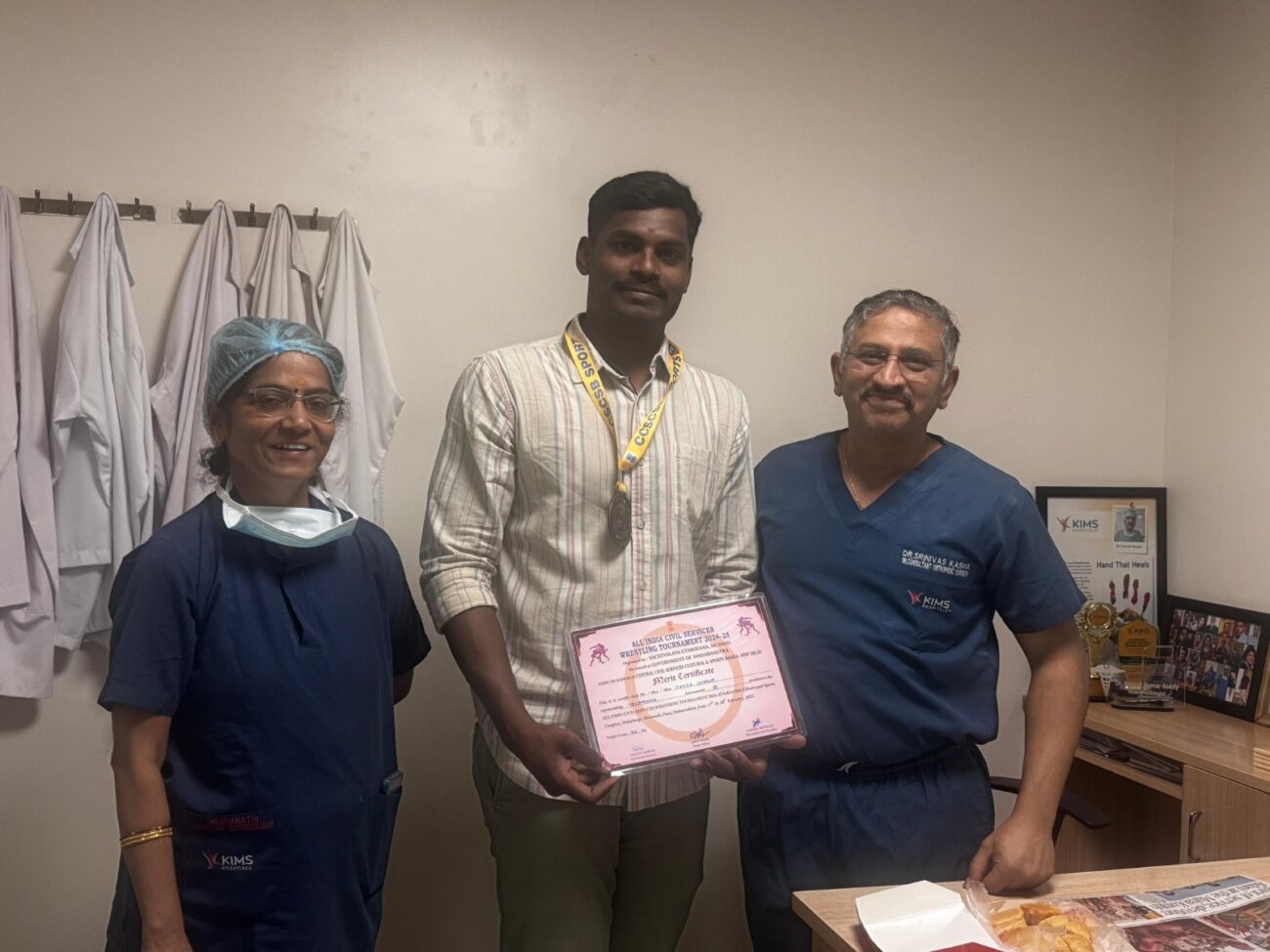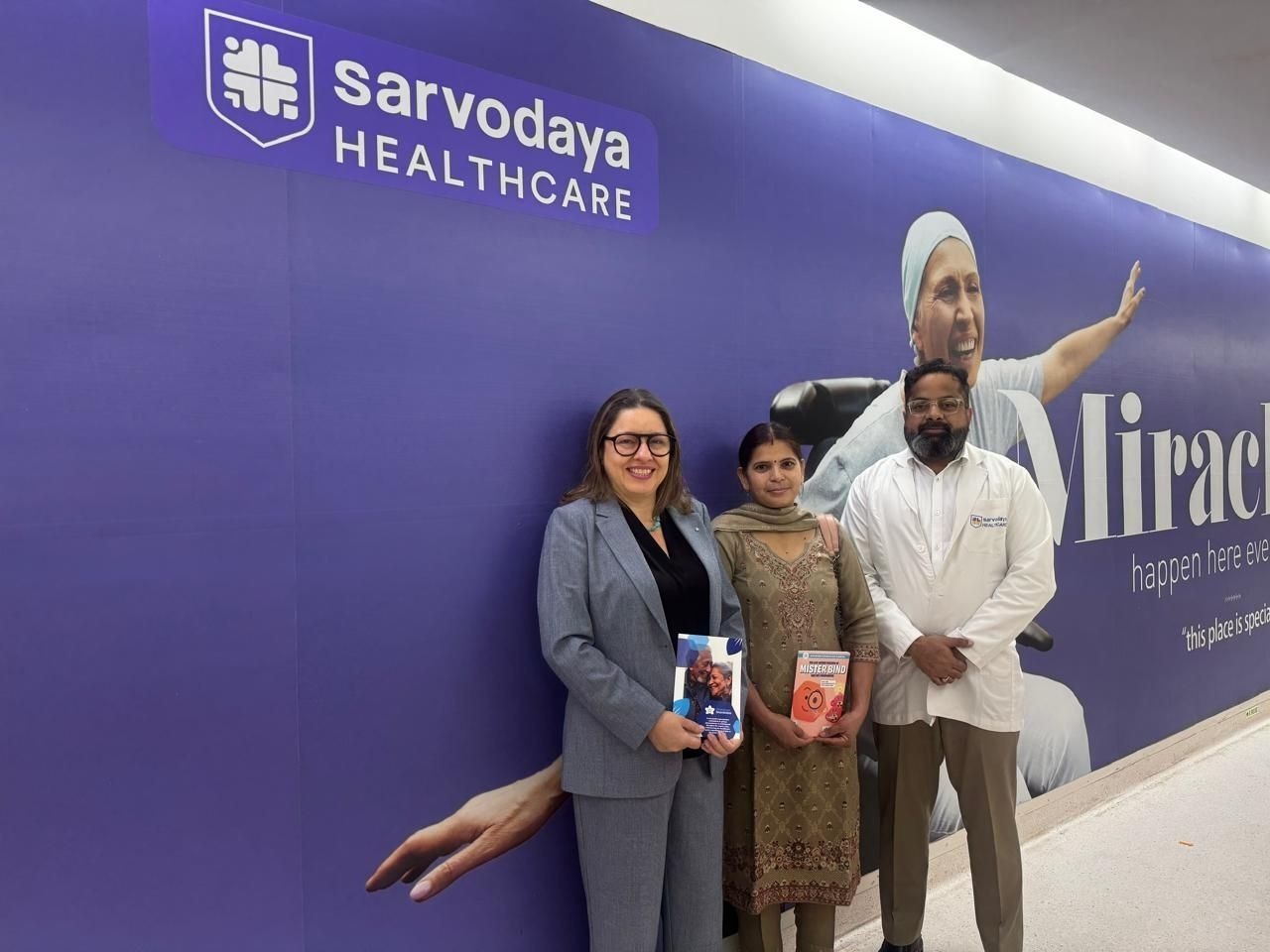4 Early Symptoms of Colon Cancer Young Adults Should Know
Dr Nikhil Mehta, Consultant Surgical Oncologist, HCG Cancer Centre, Jaipur Colon cancer, traditionally considered a condition affecting older adults, has been increasingly diagnosed in younger individuals. According to the American Cancer Society, cases among adults under

Dr Nikhil Mehta, Consultant Surgical Oncologist, HCG Cancer Centre, Jaipur
Colon cancer, traditionally considered a condition affecting older adults, has been increasingly diagnosed in younger individuals. According to the American Cancer Society, cases among adults under 50 have been steadily rising, making it critical for younger demographics to recognize early symptoms. Detecting colon cancer early can significantly improve outcomes. Here are four key warning signs every young adult should be aware of:
- Persistent Changes in Bowel Habits
Unusual changes in bowel movements, such as chronic diarrhea, constipation, or alternating between the two, can be early indicators of colon cancer. Pay attention if these changes persist for more than a few weeks or if stools appear narrower than usual. Such changes may suggest a blockage or growth in the colon.
- Blood in Stool or Rectal Bleeding
Noticing blood in the stool, whether bright red or darker in color, is a red flag that should never be ignored. While conditions like hemorrhoids can also cause rectal bleeding, persistent blood in stool warrants immediate medical evaluation. This symptom can signal tumors in the colon or rectum.
- Unexplained Weight Loss
Unexpected weight loss without any changes to diet or exercise routines could be an early sign of colon cancer. As the cancer progresses, it may impact the body’s ability to absorb nutrients, leading to significant weight loss. This symptom often accompanies a loss of appetite or fatigue.
- Abdominal Pain and Discomfort
Frequent abdominal cramping, bloating, or a feeling of fullness even after eating small meals may indicate colon cancer. These symptoms could result from blockages or inflammation caused by tumors in the digestive tract.
What Should You Do?
If you notice any of these symptoms persisting for more than two weeks, consult a healthcare professional immediately. Early screenings, such as colonoscopies or stool-based tests, can help detect precancerous polyps or cancer in its early stages.
How to Reduce Your Risk
- Adopt a Healthy Diet: Eat plenty of fiber-rich foods, fruits, and vegetables while limiting red and processed meats.
- Stay Active: Regular exercise can help reduce the risk of colon cancer.
- Avoid Smoking and Excessive Alcohol Consumption: Both are linked to a higher risk of colorectal cancer.
- Know Your Family History: If you have a family history of colon cancer, consider starting screenings earlier.
Treatment Options
Treatment often depends on the stage of the disease and individual factors like overall health. Some common treatment approaches include:
- Surgery
- Polypectomy or Local Excision: If detected early, small, localized tumors or polyps can be removed during a colonoscopy.
- Colectomy: For more advanced cases, a portion of the colon may be removed, and the healthy parts are reconnected.
- Colostomy: In cases where reconnection isn’t possible, an opening (stoma) is created for waste elimination.
- Radiation Therapy – Often used for rectal cancer or advanced colon cancer, radiation therapy uses high-energy rays to destroy cancer cells and shrink tumors.
- Chemotherapy – Involves drugs that kill or inhibit the growth of cancer cells. It is typically recommended after surgery if cancer has spread to nearby lymph nodes or beyond.
- Targeted Therapy – Drugs like monoclonal antibodies or small molecules are designed to target specific proteins or genes involved in cancer growth. These therapies are effective in advanced or metastatic cases.
- Immunotherapy – Utilises the body’s immune system to identify and attack cancer cells, often in cases with specific genetic markers, such as mismatch repair deficiency.
Colon cancer in young adults is a growing concern, but early awareness and proactive steps can make all the difference. By staying vigilant and prioritizing your health, you can reduce your risk and detect potential issues early.






